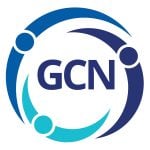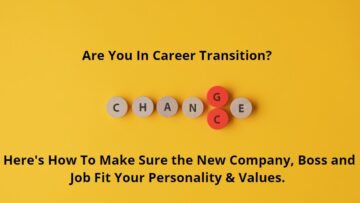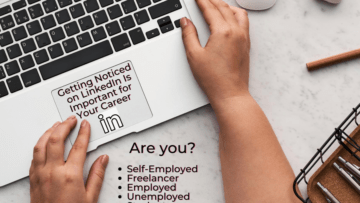Your Personality. Your Values. The Right Job for You.
A recent LinkedIn survey reported the most frustrating manager qualities. The number one complaint employees reported was that manager expectations were unclear and frequently changing. Micromanagement, manager unavailability, managers not fostering employee growth, and professional development ranked second, third, and fourth, respectively.
If you are currently in career transition, there is a lot you can do before “committing” (agreeing to take the job) to avoid being saddled with a frustrating manager. Ensure that your personality and values match with the organization, the hiring manager you will be reporting to, and the team you will be working with.
Taking a personality assessment and developing a company culture and role profile (CCRP) will help you make better decisions.
Understand Your Personality Strength and Struggles
Take a personality assessment to understand your personality strengths and struggles. A personality assessment is simply a subjective, self-report questionnaire. There are several reliable and credible assessments available to help you ascertain your typical personality strengths and struggles, such as Personality ID, Myers Briggs Type Indicator, DISC, The Big Five Personality Test, and many others. Personality assessments classify individuals into eight primary behavior patterns: adaptive vs. directing, reserved vs. interacting, objective vs. supportive, and unconventional vs. conscientious.
If your personality is highly unconventional, you tend to rely on instinct and like to operate without written rules. You are naturally flexible, versatile, and work well with broad concepts. Your personality type functions best in natural environments that encourage quick and candid responses.
Seek a company culture, a boss, and a role that best matches your personality.
Develop a Company Culture & Role Profile (CCRP)
Developing a CCRP requires some basic knowledge, good detective work, and an investment in your time. Use a Microsoft Excel Workbook to capture data and information. Each worksheet can represent a separate company of interest. Perform research in the following areas and note the information in your Excel workbook.
Company Culture.
Very simply, an organization’s culture is characterized by the way they do things. Culture shapes organizational social norms and attitudes. Culture is defined by how people interact, solve problems, and accomplish goals & objectives.
Groysberg, Lee, Price, and Cheng (2018) identified eight primary organizational culture styles classified by employee interactions (tendency toward high independence or high interdependence) and employee’s responses to change (tendency toward stability/predictability or adaptability/flexibility).
Caring: relationships & mutual trust
Purpose: idealism & altruism
Learning: exploration & creativity
Enjoyment: fun & excitement
Results: achievement & winning
Authority: boldness & decisiveness
Safety: planning, caution, & preparedness
Order: rules & structure
Recall our highly “unconventional” personality from the previous section? Which primary cultures might not be a good fit? If you guessed safety and order culture, you are correct.
Internet Search
You can find a lot about company culture by reviewing company annual reports, company web pages, LinkedIn company pages, Indeed, or Glassdoor employee comments. Identify the company’s vision, mission, and values. Do you see evidence of what it might be like to work for the company? Check for the organizational climate indicators. Can you see evidence of the following or not?
Communication: communication seems to be open and free-flowing
Reward System: recognition of people for a job well done
Organization Clarity: things are well-organized with a clear definition of goals & objectives
Teamwork: the amount of understanding, cooperation, and support demonstrated
Suppose you value professional development, integrity, and social responsibility. Do you see evidence of tuition reimbursement for education or industry certifications, doing the right thing, or participating in a corporate social responsibility program?
Network, Network, Network
Have informational conversations with staff at the company. Use LinkedIn to set up informational interviews to determine what it’s like to work for the company or the hiring manager. Reach out to people who work at the company or worked there previously. Connect and have a conversation. Ask: “Tell me what it’s like to work at Company ABC.” Review the hiring manager’s LinkedIn profile, skills, endorsements, and recommendations.
Examine Job Descriptions
A good job description and all job descriptions are not all created equally, is a communication tool that tells potential candidates what skills and qualifications the company and hiring manager are looking for in a candidate. Deconstruct the job description. If the job description emphasizes teamwork and learning, it is likely that the culture focuses on collaboration and learning or has identified it as a gap the candidate could fill. It is your job to find out. LinkedIn Premium does some analysis for you. See the following LinkedIn Sections: How you match? and Competitive Intelligence About Other Applicants.
Interview Preparation
Schedule a mock interview with Leslie Segarnick, The Interview Doctor. Dr. Les is an expert in job search and interview techniques providing coaching no charge to folks in job transition. You will need to supply him with your resume and the job description in advance. He can help you “Flip the Script” (see below.). Read his Top Ten Interview Questions & Tips article, which includes his BIO.
Interview Time: Flipping the Script
Flip the script. A few strategic questions asked during the interview can give you useful information. Ask the recruiter: “What is it like working for Company ADC?”, “What can you tell me about (the hiring manager)?” Ask the hiring manager: “Tell me about yourself.” “Tell me about your leadership style.”, “Do you prefer weekly one-on-ones?”
While there are no guarantees, you will have significantly increased the probability of a more successful match, by taking this systematic approach. The higher the degree of match (company, boss, and job), the happier and more successful you will be in the new role!
References
Groysberg, B., Lee, J., Price, J., & Cheng, J. (2018, Jan-Feb). The leader’s guide to corporate culture. Harvard Business Review (HBR).
LinkedIn. (2018, October 22). The “most frustrating” things a boss can do is…“
AUTHOR BIO
Dr. Laura Dowling, MBA-TM, CHFP, CRCR, CSBI has 20 years of corporate leadership experience in the healthcare industry, developing and executing strategies to improve operational and financial performance. She has hired, trained, managed, and professionally developed hundreds of employees. She has a reputation for building and leading high-performing teams that exceed expectations.
Dr. Laura has 13 years’ experience as a professor developing curriculum, designing courses, and providing instruction in business administration, healthcare administration, leadership, and strategic management at Gwynedd Mercy University. She is an instructor at Gwynedd Mercy University and doctoral dissertation committee member at the University of Phoenix. Reach Dr. Laura at https://www.linkedin.com/in/laura-dowling-dm/




